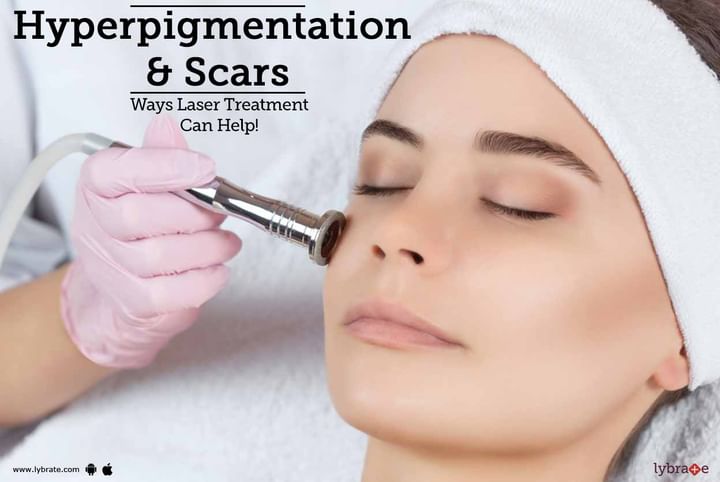Hyperpigmentation & Scars - Ways Laser Treatment Can Help!
Acne is irritating not only when it is active, but even after it heals. This is because it leaves behind unpleasant scars and pigmentation. Laser therapy is the best known way of dealing with these scars and pigmentation issues. It is a misconception that laser treatment is a new form of skin therapy. Laser is being used to treat pigmentation scars since 1964, however, the procedures have evolved significantly and become much more improved and effective.
How does laser therapy work?
Lasers direct intense amounts of monochromatic light at precise points on the skin. This light is emitted in short pulses. When this light hits the skin it heats the hemoglobin cells. The precision with which lasers direct this light ensures that surrounding cells are not affected.
By changing the amount of light, lasers can be used to address cells at varying depths of the skin. In the case of scars, they can destroy the excessive melanin deposits causing a scar. It can also boost collagen production.
In most cases, lasers used to treat skin issues are carbon dioxide or argon lasers. These are known as CW lasers. Laser therapy may be short pulsed or long pulsed. The difference between the two lies in the rest period between emitting bursts of light. The type of laser therapy used depends largely on the degree of scarring or hyperpigmentation.
Advantages and Disadvantages of Laser treatment
- One of the biggest advantages of this form of therapy is its precision. Laser therapy does not affect the surrounding cells. It is also a bloodless form of therapy that does not require any hospitalization. As compared to other forms of skin therapy for scarring such a dermabrasion, laser therapy does not increase a person’s risk of infection.
- On the flip side, laser treatment does not work well with all types of scars or all skin types. Also, some people may require multiple sessions for results to be noticeable. In cases of scarring on dark skin, laser lights can wound the capillaries in the skin. As the skin in this area heals, it may become lighter than the surrounding skin. Laser treatment can also cause raised scars known as keloids when used to treat dark skin. These scars cannot be treated with laser therapy and requires additional treatments. Laser treatment is also a little more expensive as compared to other forms of therapy.
- If you choose to undergo laser treatment to remove scars and pigmentation, it is important to have realistic expectations. Do not expect your skin to be perfect after the procedure. While there will be an improvement, do not assume that 100% of scarring will be removed.
In case you have a concern or query you can always consult an expert & get answers to your questions!
In case you have a concern or query regarding skincare consult doctor online, you can always consult the best dermatologist online & get the answers to your questions.



+1.svg)
